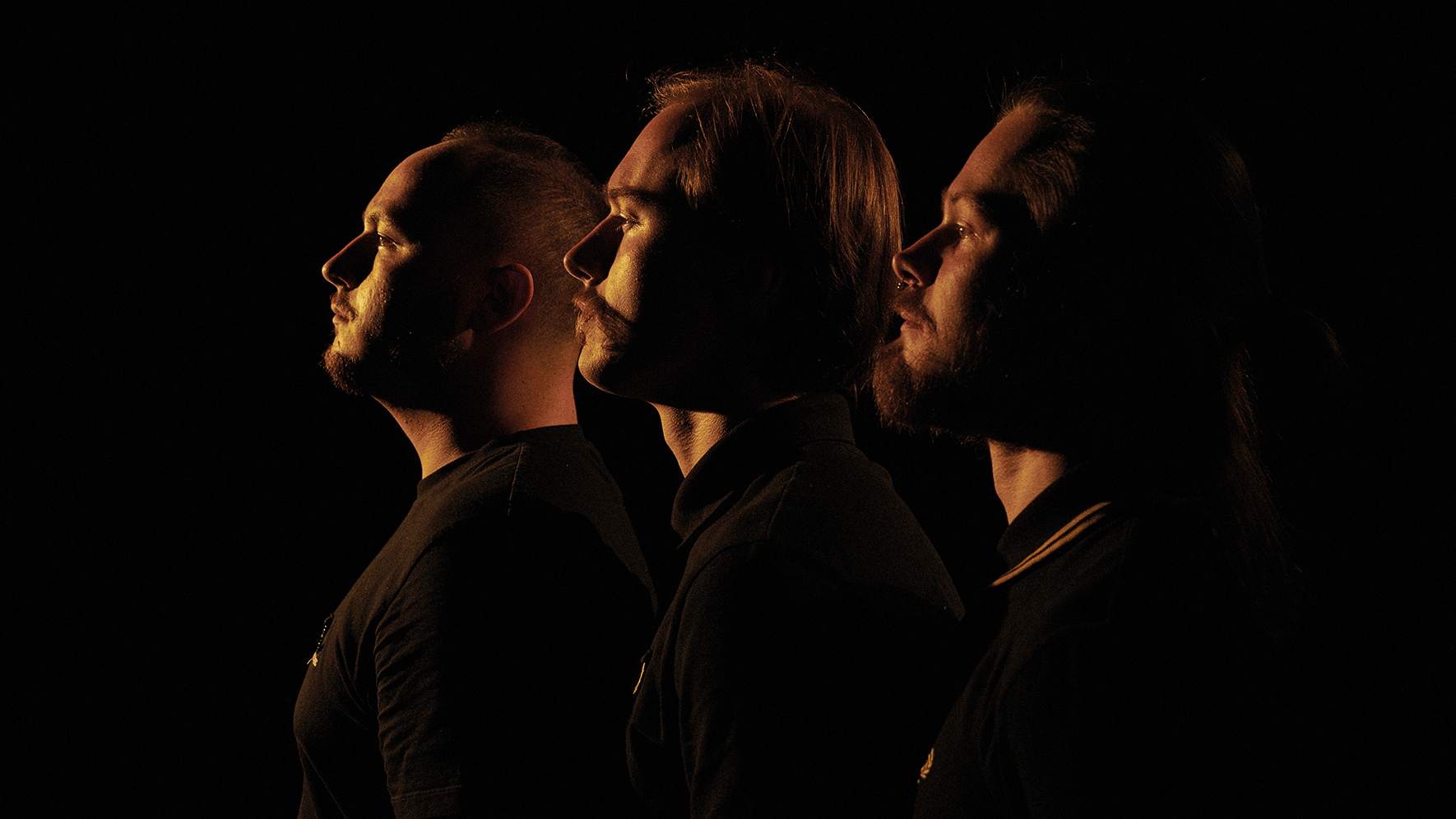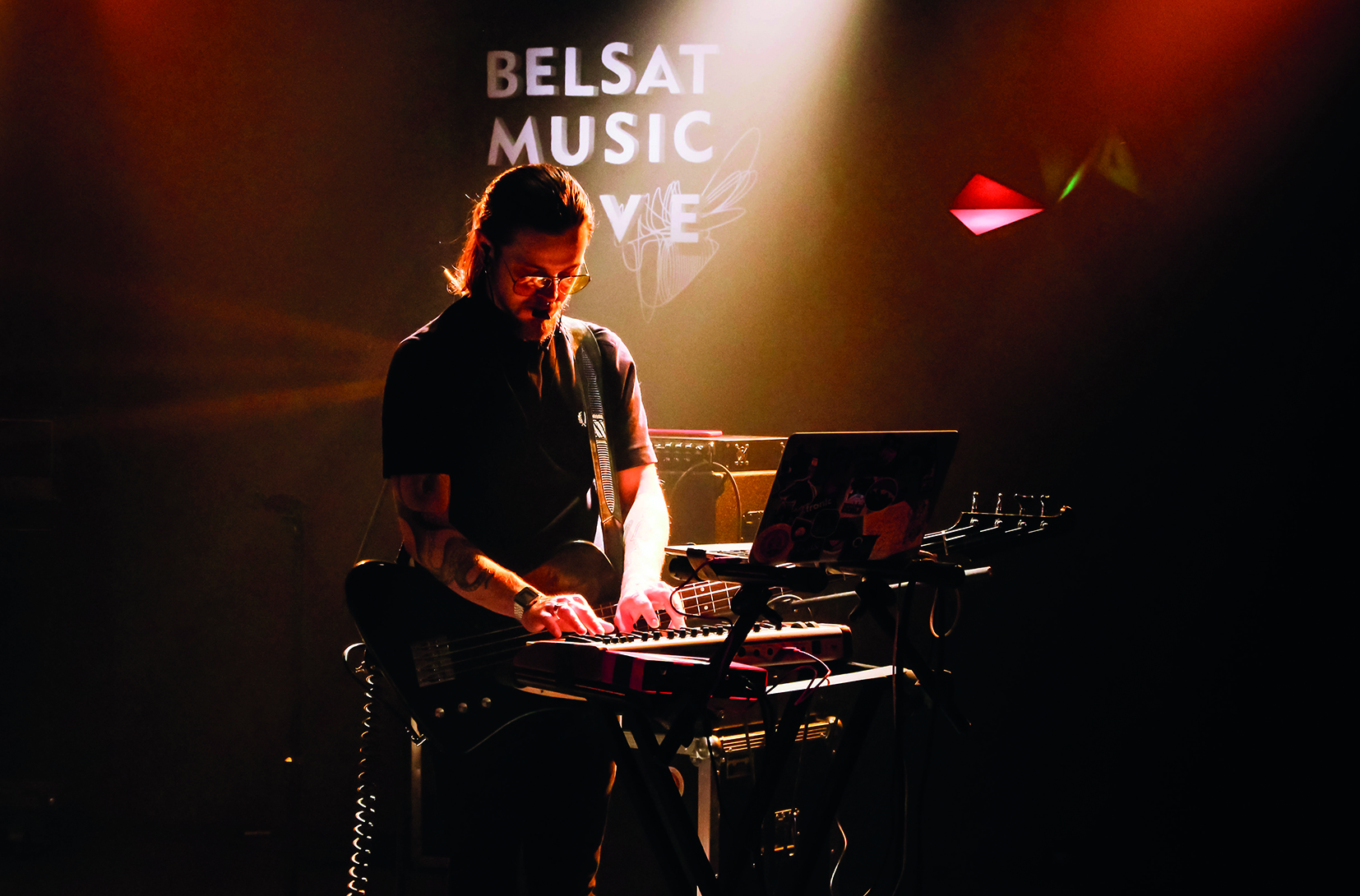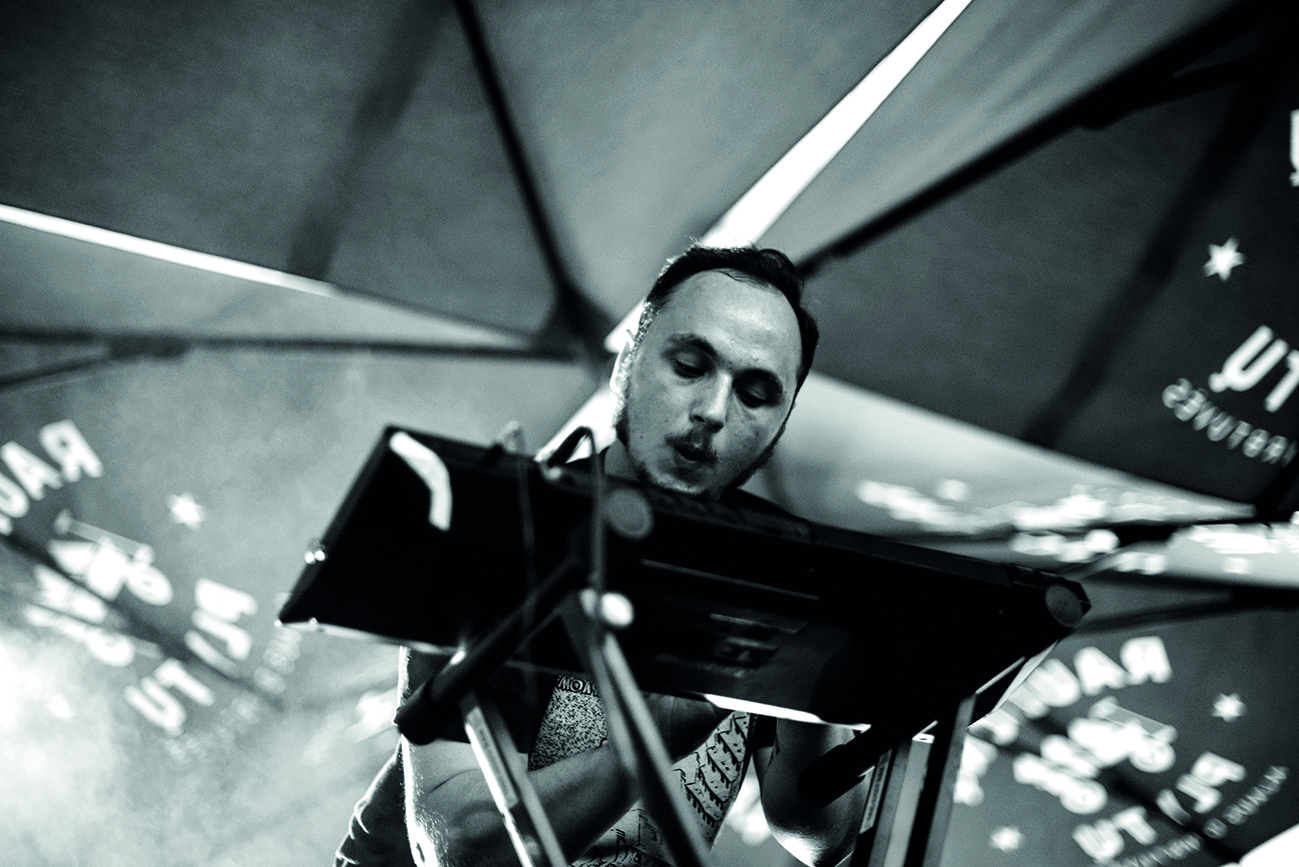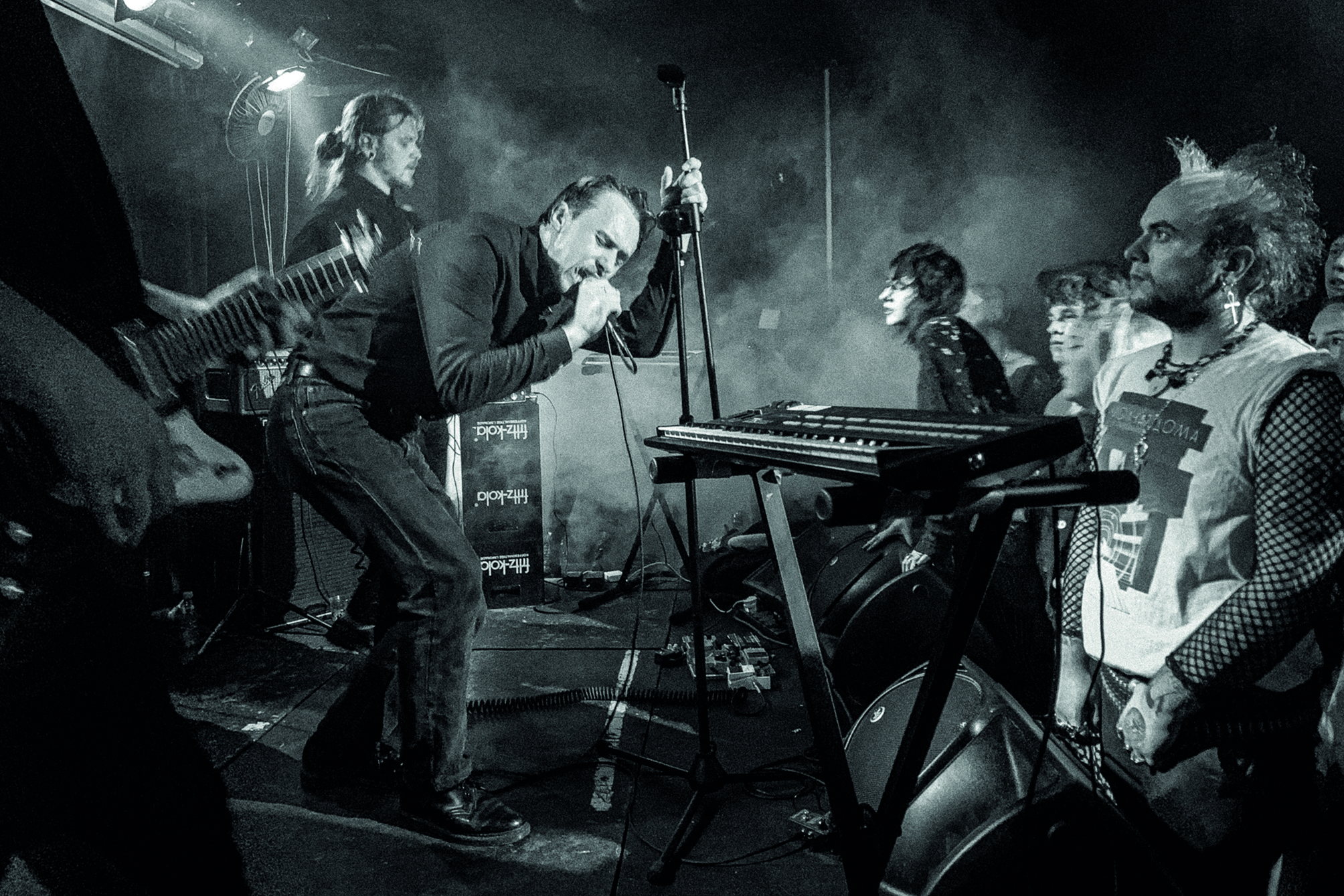Molchat Doma: "I use FL Studio 10 – yes, I’m old-fashioned!"
We catch up with the Belarusian post-punks following the release of their third studio album

Want all the hottest music and gear news, reviews, deals, features and more, direct to your inbox? Sign up here.
You are now subscribed
Your newsletter sign-up was successful
Formed in only 2017, Belarusian three-piece Molchat Doma might just have brought one of the most loaded, politically-charged aesthetics of the past few years.
And, as the likes of the New York Times have reported, on the basis of how many US TikTokkers have nicked this band’s tracks in order to bring a doomy or faux-portentous mood to their latest exploits (in particular, the widely streamed Sudno from their 2018 album Etazhi), the trio have certainly played their part in soundtracking the harrowing circumstances of their homeland in the past two years.
Due to the imperfection of the equipment, it turned out to be very special
But, partly through the necessities of legality (freedom of expression being notably limited in today’s Belarus), and partly because the band are both synth lovers and music history buffs, it’s often their new wave and Gorbachev-era, Soviet-harking music which carries much of that weight of tone.
Having delivered their third album, Monument, in late 2020, the band (vocalist Egor Shkutko, Roman Komogortsev on guitar, synths and drum machine, and Pavel Kozlov on bass and synths) will spend this autumn touring internationally and will be making their way around the UK and Ireland in November. We spoke to Roman to find out more.

Molchat Doma are known as a vintage synth lover’s band. Tell us a bit about how your love affair with this technology started? What were your individual progressions in learning music?
“We’ve always liked old music. When we started making music, it became interesting to see how our favourite tracks were made, on which instruments some parts were played. My first instrument was Yamaha DX7 – obviously an icon from the ’80s – and since then I’ve fallen in love with synthesisers.”
What does your usual songwriting process look like? And how do you separate tasks amongst the band, both in songwriting, recording and when translating to a live performance?
Want all the hottest music and gear news, reviews, deals, features and more, direct to your inbox? Sign up here.
“95% of the time it’s me writing the music, and I also do mixing and mastering. Sometimes we get something out of jams at rehearsals, sometimes even whole tracks are invented together. When there is a finished musical part, then we go to a rehearsal and there, with Egor, we come up with some vocal lines. As a matter of fact, it’s nothing supernatural generally.”
When we started making music, it became interesting to see how our favourite tracks were made
What’s in your current studio? And what’s in your live setup?
“My current studio setup consists of a Moog Minimoog, Roland D-50, Yamaha DX-7, Roland W-30, Roland Alpha Juno-2, Sequential Prophet-5, Arp Odyssey mkII, Roland Jupiter-X and Roland TB-03.
"I also have a Roland TR-8 drum machine for making sketches. My hardware sequencer is a mega great sampler by Akai, the MPC One. For live, I used Prophet-5 as my main synth with an EHX Cathedral reverb. Pavel used a MacBook with Roland Cloud plugins and two Arturia midi keyboards. For playback we used the Akai MPC One. We also used a Gibson Flying V Reissue 67 guitar and Rickenbacker 4001 bass.”

What DAW do you usually use?
“I use FL Studio 10 – yes, I’m old-fashioned! Pavel uses Ableton Live’s latest version.”
You’ve said you’re fascinated by the Perestroika/mid-’80s style. Could you expand a little bit about your attraction to that?
“This is something that’s difficult to explain. In Soviet aesthetics, you have something of your own that is ugly and at the same time neat and attractive. Actually, the music of that period is the same. Due to the imperfection of the equipment, it turned out to be very special.
"This was one of the reasons why we did it the way we did it. Naturally, now we’re already moving away from this, as other sources of inspiration have appeared.”
The band uses a lot of vintage styles – is that something intentional/researched or is it the particular hardware choices that drives that?
“A bit of both! We try to use more vintage equipment, as it gives us a certain pleasure, but if it doesn’t work, then you have to make a vintage sound artificially.”
As a no-drummer band, talk us through your process for beatmaking, which again, seems to focus on vintage drum machines…
“The drum machine and its sound are very important elements of our music. Here, just like with synthesisers – I had to study and learn them. We use samples in our music, as, unfortunately, we don’t have vintage pieces in our arsenal. Plus, they’re tricky to work with – some have a very difficult interface to program them freely. It is convenient to do this in a DAW. In our new songs, we sometimes use three drum machines, mixing samples with each other – that’s more interesting. Have a listen!”
We try to use more vintage equipment, as it gives us a certain pleasure
If you could have any piece of gear, new or old, what would it be?
“Easy! Jupiter-8, Yamaha CS-80 and probably an Emu Emulator II.”
If you had endless time, would there be a particular area of synthesis you would like to explore that you haven’t tried already?
“I would like to work and understand modular synthesisers. I haven’t gotten to that yet.”
How do you feel about the band’s reception in the rest of the world and this often-reported TikTok popularity? Do you think listeners/reviewers fully understand your sometimes ironic style (eg “New Wave Sadness”)?
“We’re OK with that. We love that more and more people are listening to us. I don’t know if they understand our humour, so to speak (talking about the name of the tour), but I hope they do not focus much on this.”
You’ve got quite a full set of world tour dates coming up. How do you feel about this?
“We’re excited and want them to take place, but anything can happen. Obviously you have to understand the kind of times we live in...”

What do you envisage for your next album following Monument? Have you already put together anything for it? Has any particular piece of gear featured heavily or is your setup mostly going to remain the same?
“We are in a partial creation process. I don’t want to rush. I would like to make a really memorable record in the spirit of a violator. There will be many references to bands that we love and listen to now. Instrumentation and sounds will also be not quite peculiar to us. But it’ll be interesting.”
What advice would you give to new musicians?
“Do not give up! Improve yourself, listen to a lot of different types of music and do whatever you like.”
Molchat Doma's new album, «Монумент», is out now on Sacred Bones Records.


Future Music is the number one magazine for today's producers. Packed with technique and technology we'll help you make great new music. All-access artist interviews, in-depth gear reviews, essential production tutorials and much more. Every marvellous monthly edition features reliable reviews of the latest and greatest hardware and software technology and techniques, unparalleled advice, in-depth interviews, sensational free samples and so much more to improve the experience and outcome of your music-making.
